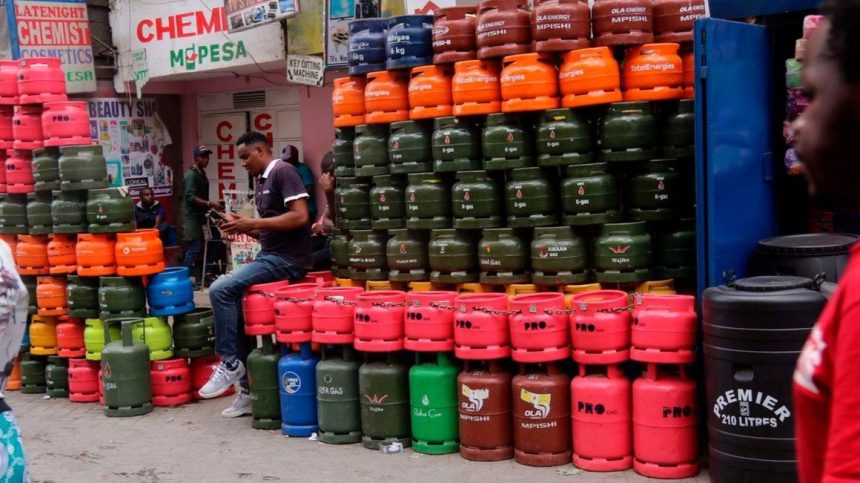Major cooking gas dealers have a price difference of up to Sh500 for the 13-kilogramme cylinder, highlighting the deep margins some players have put on the commodity amid a push for controls.
A spot-check by the Business Daily revealed that the 13-kilogramme gas at TotalEnergies and Vivo sell is retailing at Sh3,330 and Sh3,320 respectively compared to Sh2,790 at Rubis.
The six-kilogramme is going for Sh1,190 at Rubis compared to Sh1,540 and Sh1,530 at TotalEnergies and Vivo respectively.
The prices are significantly higher than the average of Sh2,900 and Sh1,350 for the 13-kilogramme and six-kilogramme commodities quoted by the small dealers.
Kenya does not control prices of cooking gas, offering dealers a platform to hike prices citing high taxes and a costly commodity in the global market.
The Energy and Petroleum Regulatory Authority (Epra) attributes the huge price variance to high overhead costs for dealers with vast markets.
“The disparity in the LPG retail price may be attributed to difference in overhead costs between the multinationals and the small to medium sized companies.
Multinationals have higher asset base and hence incur higher cylinder maintenance and distributions costs that are passed to customers.” Mr Kiptoo said.
Unlike super, diesel and kerosene prices, cooking gas prices are not State-controlled leaving customers at the mercy of dealers who have recently hiked prices citing higher taxes and increase in global prices of crude.
Dealers have in the past hiked prices attributing it to higher taxes, a global rally in crude prices and the weakening shilling that has made imports costly.
Cooking gas prices shot up two years ago by up to Sh350 following the re-introduction of the 16 percent Value Added Tax, coupled with the global rally in prices of crude.
But the dealers failed to lower prices after the VAT was halved to eight percent last year, denying customers the intended effect of the tax change.
The prices are likely to drop by up to Sh430 for the 13-kilogramme if Parliament adopts a government proposal to scrap three taxes on the commodity.
Proposals to remove the eight percent VAT, the 3.5 percent Import Declaration Fees and the Railway Development Levy of two percent are contained in the Finance Bill, 2023.
Besides tax removals, the State is also banking on a plan by the Kenya Pipeline Company to build a 30,000 tonne common-user facility for handling cooking gas imports to lower the cost of cooking gas.
Read: Cooking gas consumption falls to four-year low
KPC’s common user facility will allow the introduction of the Open Tender System for cooking gas imports where the marketer who quotes the lowest prices win the tender to import the commodity on behalf of the sector with the State setting maximum prices.




